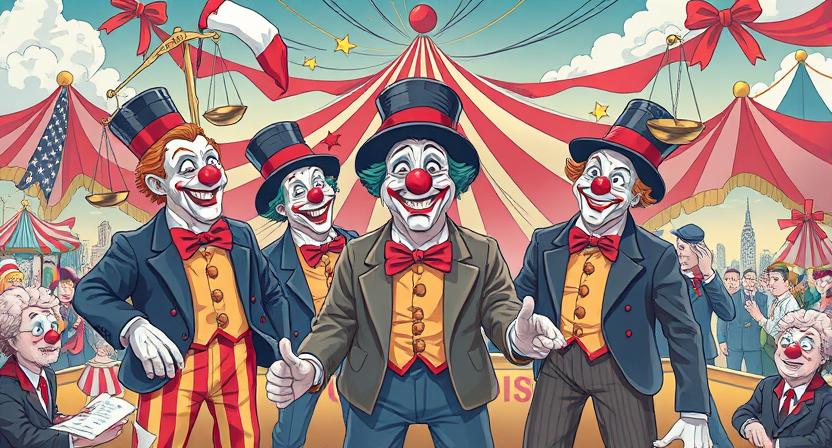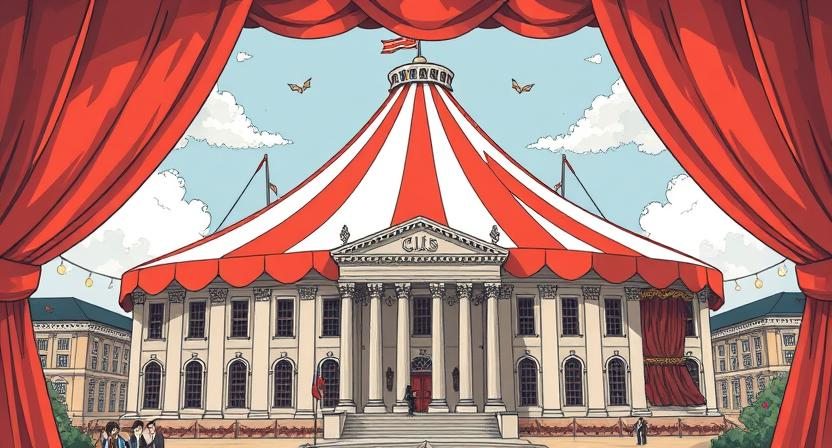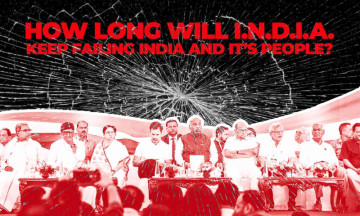In the complex tapestry of modern governance, the phrase "Elect a clown, expect a circus" has become an increasingly apt metaphor. This saying encapsulates the chaos and unpredictability that often accompany leadership styles characterized by impulsiveness and lack of depth. In India, this phenomenon is particularly evident as governance issues continue to plague various sectors.

Lack of Effective Governance
-
Urban Mismanagement: Cities in India are grappling with severe governance crises. Incidents like the tragic accident in Pune involving a drunk teenager highlight systemic failures in law enforcement and justice delivery. Such cases expose deep flaws in how cities manage critical services and ensure accountability.
-
Environmental Neglect: Fires at facilities like the TRP Game Zone in Rajkot underscore neglect of safety regulations and ineffective municipal oversight. These incidents reveal how lax enforcement can lead to catastrophic outcomes.
-
Water Crisis: Delhi's water woes illustrate another facet of governance failure—political squabbles over resources that leave citizens suffering. This scenario is emblematic of broader issues where political interests overshadow public needs.

Democratic Processes Under Strain
Democracy thrives on robust institutions, transparent decision-making processes, and respect for human rights. However:
-
Chaos in Legislative Bodies: Disruptions within Parliament reflect deeper institutional challenges that impede constructive dialogue.
-
Human Rights Concerns: The weaponization of legal tools against civil society organizations undermines democratic freedoms. Arbitrary actions against activists and journalists erode trust in government institutions.

Is This Democracy?
The essence of democracy lies not just in elections but also in effective governance, protection of rights, and accountability to citizens. When these elements falter:
-
Lack of Regulations: Absence or poor enforcement of regulations leads to unchecked exploitation by those with power or wealth.
-
Disregard for Human Rights: Actions such as forced evictions without due process further strain democratic principles.
In conclusion, while democracy provides mechanisms for change through elections, it requires more than just electoral participation to thrive—it demands responsible leadership committed to upholding democratic values amidst chaos.

Conclusion
The phrase "Elect a clown; expect a circus" serves as a stark reminder that leadership matters deeply when it comes to maintaining order within chaos. As India navigates its complex political landscape marked by instances like those described above—where systemic failures meet political opportunism—it becomes crucial for citizens to demand better from their leaders: transparency, accountability, and adherence to democratic norms are essential if we hope to build stronger institutions capable of addressing our myriad challenges effectively.
Ultimately, democracy's strength lies not just in its ability to elect leaders but also in its capacity for self-correction through informed citizenry demanding better from their elected representatives—a task both urgent and ongoing today across many parts of India facing similar dilemmas under current systems lacking robust checks on power abuses or misgovernance patterns observed frequently now more than ever before historically speaking here domestically at least going forward hopefully into brighter futures ahead still yet unseen fully though surely hoped upon widely nonetheless moving onward still optimistically indeed always looking ahead positively too hopefully forevermore ideally so indeed!
With inputs from agencies
Image Source: Multiple agencies
*The views expressed are personal to the author and do not reflect the platform's opinion of the same.
© Copyright 2024. All Rights Reserved Powered by Vygr Media.










